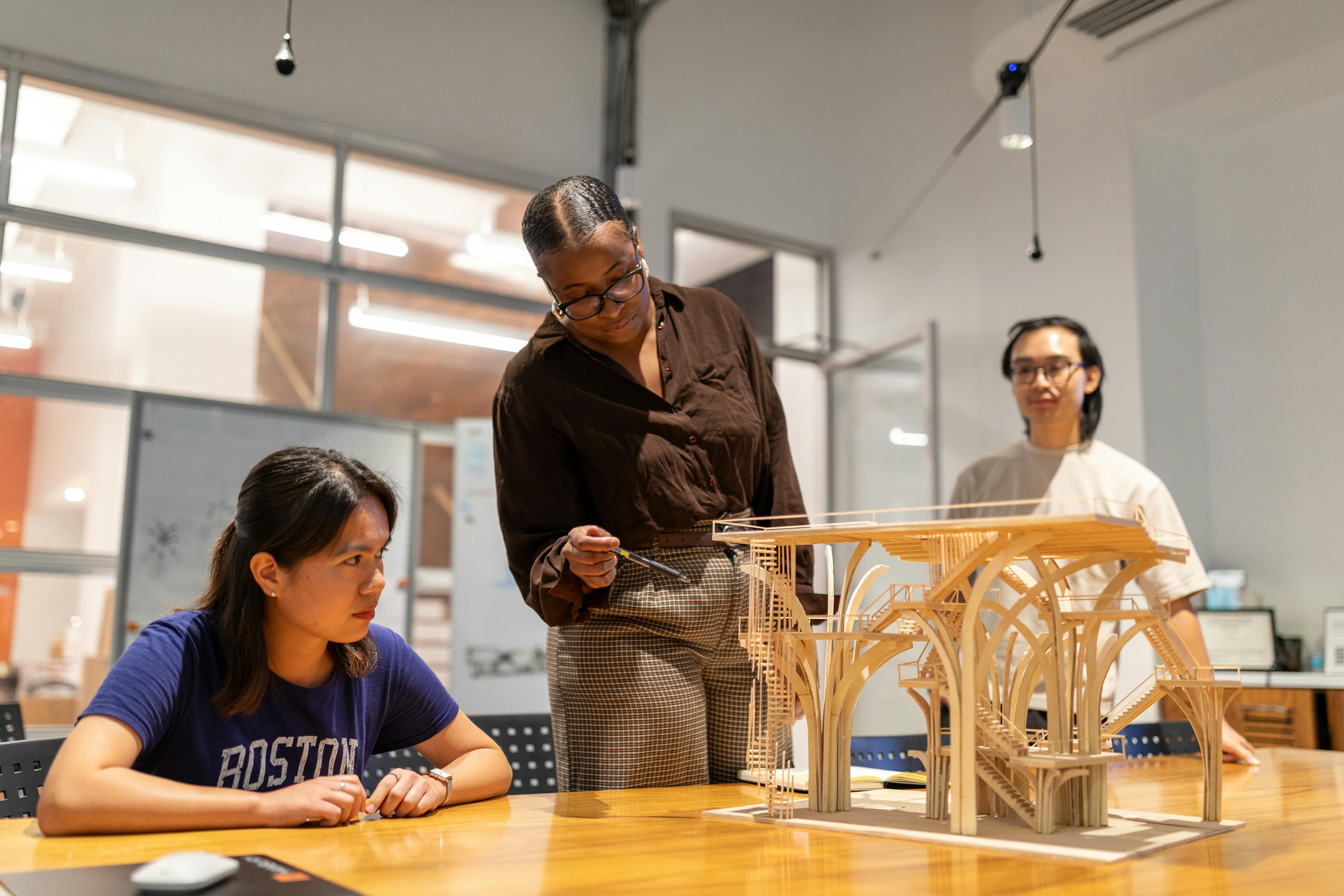


IPAL at Hanbury
The Integrated Path to Architectural Licensure (IPAL), endorsed by the National Council of Architectural Registration Boards (NCARB), is reshaping architectural education by enabling students to complete both the Architectural Experience Program (AXP) and the Architect Registration Examination (ARE) before graduation.
This accelerated path to licensure combines academic rigor with vital practical experience, significantly enhancing the learning curve and career readiness of its participants. For students like Ariana McCoy and Nelanie Anderson, Hanbury’s current IPAL students, this opportunity has proven transformative.


A third-year Master of Architecture student at Hampton University, Ariana McCoy is a pioneer in her state's IPAL program. She joined Hanbury in 2021 as the firm's first participant, drawn to the program's focused approach. "The IPAL program suggested another level of intensity and purpose to my education," Ariana explains.
At Hanbury, she engages in diverse projects from higher education facility designs to research and community initiatives, all aligning with her AXP requirements and enhancing her professional competencies. Reflecting on her experiences, Ariana shares, "The most rewarding part has been bridging studio and work – I’m able to bring my knowledge from practice and help drive our studio forward.”


Nelanie’s path to architecture began with a life-changing trip to Haiti, where she witnessed the profound impact of simple construction techniques. Today, she is driven by a vision to integrate sustainable practices into architecture using natural materials and resources. "The IPAL program at Hanbury has given me a platform to pursue meaningful community development projects, aligning with my goals of making a lasting impact through architecture," she notes. Nelanie has engaged in community development projects, gaining practical experience that not only fulfills her licensure requirements but also enriches her perspective on sustainable architecture.
The structure of the IPAL program ensures that interns like Ariana and Nelanie are active participants within the firm. They engage in team meetings and firm-wide initiatives, benefiting from a supportive network of mentors and a culture that encourages experimentation and interdisciplinary exploration. "The freedom to explore across disciplines at Hanbury has opened multiple avenues for creativity that push the boundaries of architecture," Ariana adds.


IPAL's impact extends beyond individual development to address broader systematic disparities like the underrepresentation of minorities in architecture. By laying out a clear path to licensure, the program plays an important role in promoting diversity within the field and providing equitable access to licensure and professional opportunities. As a Hampton University student, Ariana emphasizes the strategic importance of linking these professional opportunities with academia. She shares, "I hope to encourage even more engagement between Hampton University and local professionals to create opportunities and enhance visibility for HBCU students," a sentiment that resonates with IPAL’s commitment to building professional networks that are as diverse as they are robust.
When it comes to advice for those considering the IPAL path, Nelanie offers: "Do your research, weigh your measurable realities, and be open to advice. Your journey in IPAL will be what you make of it. Approach it with respect, integrity, accountability, and ambition, and you can make it a successful one.”
For students eying a career in architecture, IPAL offers a dynamic and focused approach to professional development, preparing them for immediate and impactful contributions to the field. For more information about the program or to explore participation opportunities, please contact Rob Reis at rob.reis@hanbury.design.
Learn more about IPAL here.











